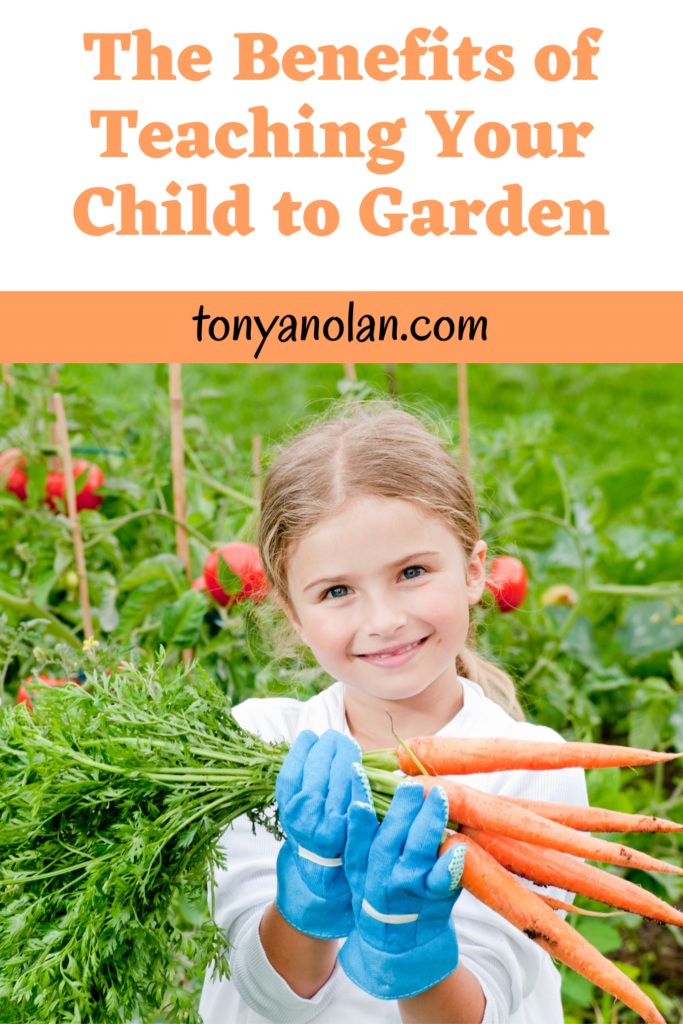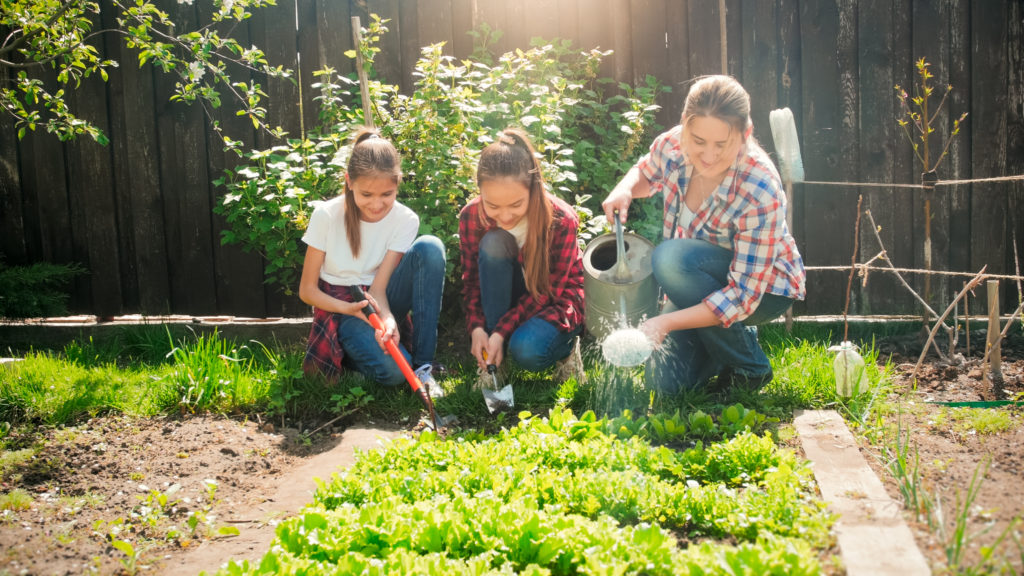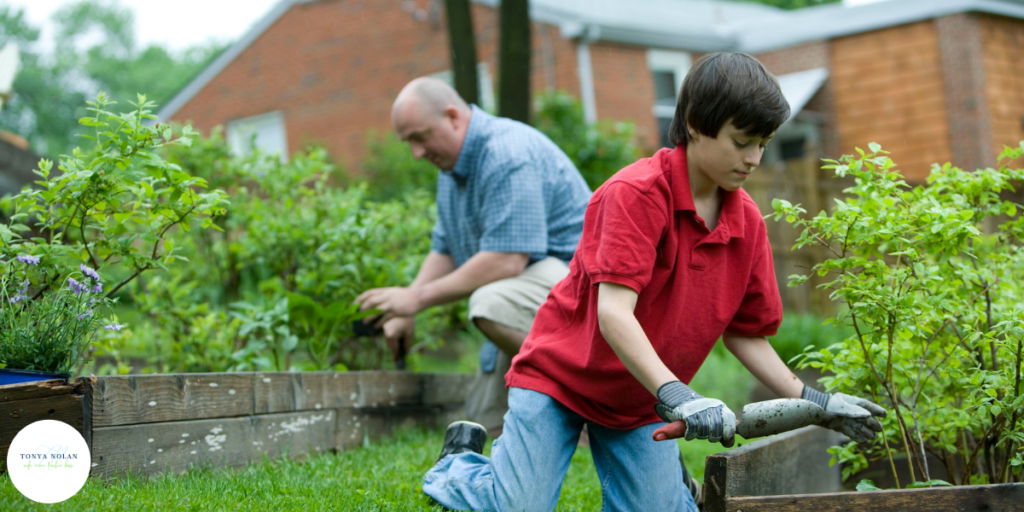
Gardening can be a fun outdoor activity that you can do with your child, and it will provide a ton of benefits that will help them in the future. So, what are the benefits of teaching your child to garden?
I am a participant in the Amazon Services LLC Associates Program, as part of this Amazon Associates program, any sales made from links in this post pay me a small commission to maintain this site. Thank you for supporting my small business.
Gardening Encourages Healthy Eating Habits
It is important for children, and adults, to eat a healthy diet. Eating healthy food is important for kids because it helps the body develop properly and will give them the nutrients they need.
As children learn to grow their own foods, it can encourage them to eat healthy fruits and vegetables and give them the opportunity of tasting and eating the foods they have grown.
They will also have a sense of pride knowing that they are eating what they have taken time to grow and take care of.
Gardening Can Help Teach Kids About Science
Teaching your child the art of gardening is a great way to introduce them to science, botany, and chemistry. From the first seed they plant, children can start learning about the scientific method as they create their hypothesis and follow the scientific method’s steps.
They will also experiment and learn about how the sun, wind, and different insects impact their growing plants. The kiddos will learn that water is also important as they balance just how much is needed to keep the plants healthy.
Also, children can learn about meteorology as they monitor the weather and keep an eye on their plants. They will be able to physically see what effects the weather has on plants and nature in general.
Teaches Responsibility, Patience, and Gives Confidence
Responsibility and patience are important skills that children of any age need to learn, and gardening is a great way for them to learn about both.
Kids will learn that they must take care of their plants each day so they grow and stay healthy. This type of responsibility will then overflow into learning that they must take care of themselves and their personal items.
Learning about patience and cause and effect can also come into play here. As the plants grow, children will learn that they must be patient and not rush things. If they are not patient and try to rush the process, they will see how it affects the plants.
When they see how their hard work has paid off and that they have grown a full plant from just a tiny seed, this will give them confidence. It shows them that with hard work, you can do just about anything.
Gardening Can Help with Math Skills
Just like gardening can help introduce or teach children more about science, it can also help them with various math skills. Children can calculate the amount of light exposure that the plants need as they count the days it takes to go from seeds to full-grown plants.
They can also practice their measuring skills and track how much the plant grows as it goes through the different stages.

Gardening Can Provide a Valuable Bonding Experience
Create lasting memories with your children as you garden. Gardening can be a fun experience that will give you quality time with each other. As you work together, you will be building a strong bond that will allow you to learn and grow together.
You will find that children will start to open up and talk as the two of you are doing things together. You can use the opportunity to include some fun and creativity by making your own potting plants, creating some garden stones, or work on other projects for your garden.
Gardening Can Help Relieve Stress and Improve Your Mood
Gardening can be a very relaxing and quiet activity. It has a calming effect on the brain, which can help improve your mood and relieve stress.
As children grow older and learn how to deal with stress and anxiety, gardening is a helpful tool to manage and alleviate that stress and anxiety. They can be working alone in the garden at an older age, leaving them with a quiet time to themselves where they can get into deep thought or calm themselves down if needed.
For children, gardening can also help develop STEM and analytical abilities. It is a hands-on learning activity that can help with reasoning, planning, and organizing.
These are just a few of the benefits of teaching children to garden. However, there are many other benefits to gardening, and it makes a great learning opportunity. Even if you do not have a lot of space to work with, you have the ability to create your own type of garden, which makes it something everyone can participate in.

Does your family have a garden? Are your children involved in planting and caring for the fruits and vegetables that will be on the table? Drop a comment and let me know; I’d love to hear what types of items you plant.